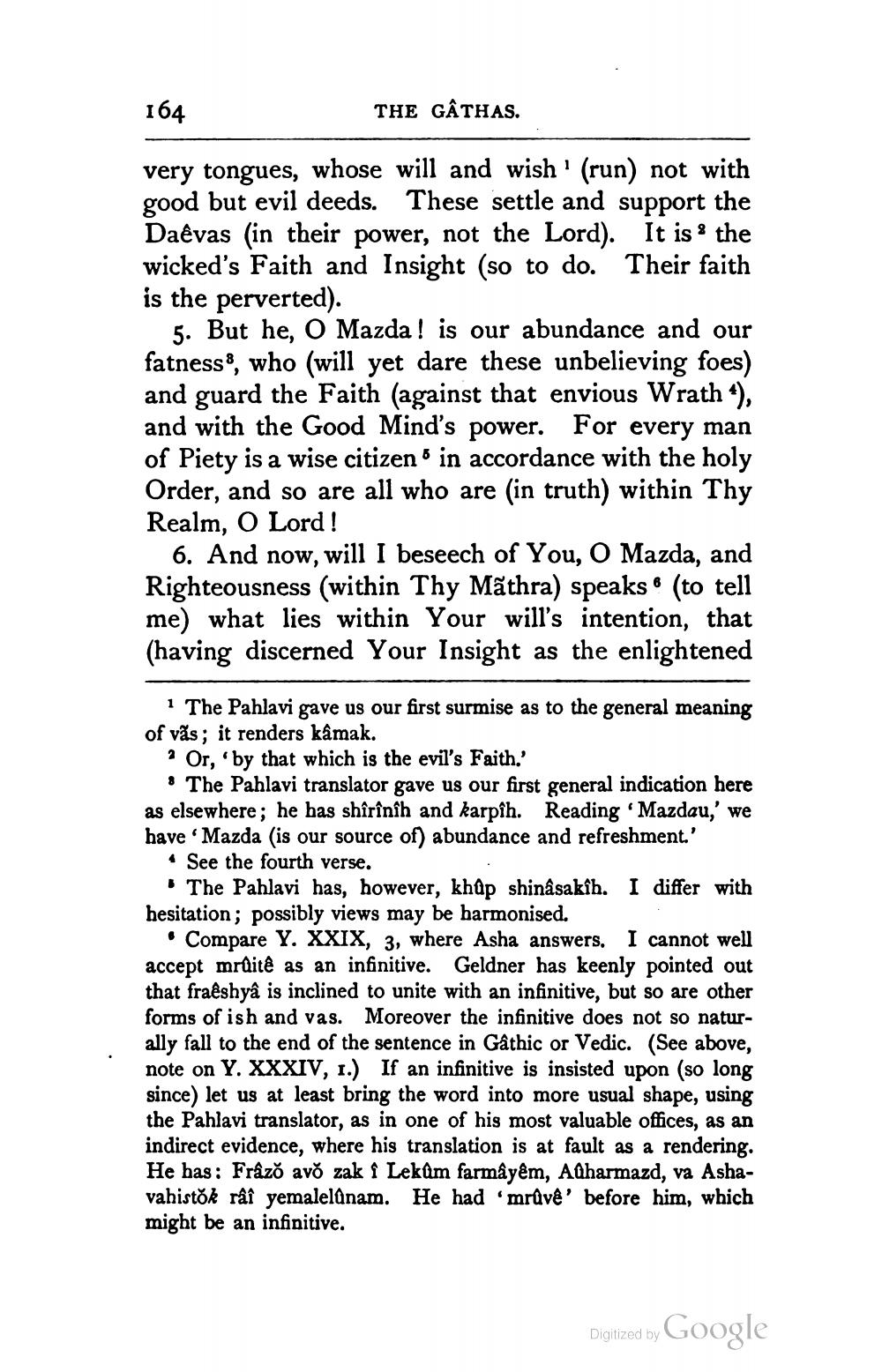________________
164
THE GÂTHAS.
very tongues, whose will and wish' (run) not with good but evil deeds. These settle and support the Daêvas (in their power, not the Lord). It is the wicked's Faith and Insight (so to do. Their faith is the perverted).
5. But he, O Mazda! is our abundance and our fatness, who (will yet dare these unbelieving foes) and guard the Faith (against that envious Wrath 4), and with the Good Mind's power. For every man of Piety is a wise citizen o in accordance with the holy Order, and so are all who are (in truth) within Thy Realm, O Lord !
6. And now, will I beseech of You, O Mazda, and Righteousness (within Thy Mathra) speaks 6 (to tell me) what lies within Your will's intention, that (having discerned Your Insight as the enlightened
1 The Pahlavi gave us our first surmise as to the general meaning of văs; it renders kamak.
? Or, 'by that which is the evil's Faith.'
I The Pahlavi translator gave us our first general indication here as elsewhere; he has shîrînîh and karpih. Reading Mazdau,' we have 'Mazda (is our source of) abundance and refreshment.' • See the fourth verse.
The Pahlavi has, however, khup shinâsakih. I differ with hesitation; possibly views may be harmonised.
• Compare Y. XXIX, 3, where Asha answers. I cannot well accept mrüitê as an infinitive. Geldner has keenly pointed out that fraêshyâ is inclined to unite with an infinitive, but so are other forms of ish and vas. Moreover the infinitive does not so naturally fall to the end of the sentence in Gåthic or Vedic. (See above, note on Y. XXXIV, 1.) If an infinitive is insisted upon (so long since) let us at least bring the word into more usual shape, using the Pahlavi translator, as in one of his most valuable offices, as an indirect evidence, where his translation is at fault as a rendering. He has : Frâzo avě zak i Lekum farmâyêm, Adharmazd, va Ashavahistòk râi yemalelānam. He had 'mrûvê' before him, which might be an infinitive.
Digitized by
Digitized by Google




